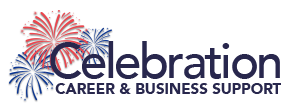Dear Hanging—
Thanks for your question. The phrase “ghosting,” used in today’s job search lingo, basically means that the an employer or candidate seems to have simply ‘disappeared’ or has no further contact as they did previously. The employer may not have ghosted you but is still considering who to hire. The timeframes of recruiting cycles is an area of which the general public is not aware.
After an interview, a reply can take several weeks—remember the employer is running their business and pressing items may have superseded getting back with you. To follow up, make a phone call vs. sending an email, to the person who interviewed you and ask if you can provide any more information about your background. Express your high level of interest in the position but don’t ask if the position has been filled. If you ask these two questions, the employer will most likely tell you the status.
Dear Luis—
Thanks for asking. Yes, it definitely matters. It makes a big difference to an employer when a candidate takes the time to send a brief, handwritten note. Emails can be accidently deleted or passed over, while a card mailed to a hiring manager’s address will get much attention.
Recently, I coached a client and she applied for her dream job at a big university—her alma mater. She sent a thank you card after her interview and landed the position. Six months after she was hired, her boss told her that during decision time, there were two candidates; both were qualified. She sent a thank you card and the other candidate did not. That was the deciding factor for the hiring manager!
Hi Jennifer—Yes, it’s true and very critical to your job search. Approximately 80% of employers view a LinkedIn profile when considering an applicant. They expect to see a photo on your profile which completes it. Along with the content on your profile, employers want to know if you have a professional image.
Your photo should be a head shot from the shoulders up and taken in front of a neutral background. A digital camera will do but no selfies, please! I have seen profile photos which include people at the beach, with their pet, and even in a bar. Your photo should contain only your likeness and dressed up as you would if you were walking into an interview.
Place your photo there and I’m confident you’ll get more response and chances to interview.
TM—Thanks for asking this question. You only have one chance to make a first impression.
If a company has a casual Friday and that’s the day of your interview, you should dress up as you would if your interview was on any other day. Companies will relax their dress code for one day because it’s a morale booster for employees—but that rule does not apply to job seekers. Once you’re hired, you can be a part of ‘Casual Friday.’ So you are correct and I think you won that bet!
I respectfully say: Get up, dress up, and show up.
Dear RK—This is a great question and one that should be thought out carefully while you’re interviewing. Prepare for this stage of the interview by knowing what salary you want to accept. If the salary offered is within your desired range, then my advice is to not negotiate. Say thank you enthusiastically and ask about the start date. All the details will follow.
The interview process is demanding enough without having to delicately try your hand at changing an employer’s mind. Negotiating a salary should only be considered if the wage is below what you feel acceptable for your skills and your needs. Don’t risk it, as there is always a job seeker waiting in the wings to accept the position.
Résumés can be one or two pages, both are perfectly acceptable—but should be no longer. If you have 5+ years experience, your résumé should have a strong summary profile plus your experience and education. You will not want to eliminate your accomplishments and critical content just so it fits on one page. Enjoy the freedom of presenting yourself without worrying about a one-page document.
